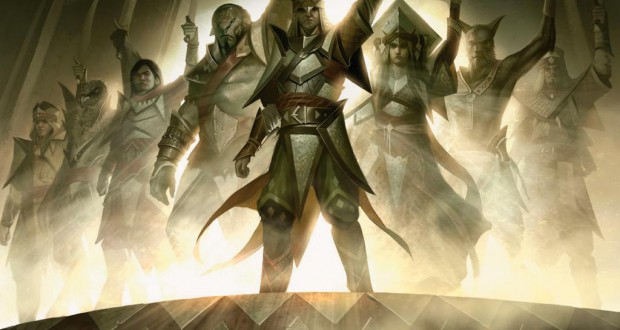Also, a strong case can be made that planning/preparation doesn't work very well in most RPGs, as a fun use of the group's time.
That depends on how it manifests. Planning and Prep doesn't have to be tedium.
Plus, I'd make the case that theres bit of overstating of how prominent these elements have to be to "count" as it were. These elements contribute to a greater whole; they really shouldn't be so disproportionately designed that they overshadow or otherwise takeaway from other elements.
The satisfaction comes from having the right tools at the right time and knowing its because a choice you made earlier paid off, and not from some obtuse management game thats effectively only there for its own sake. Hence, the idea that you can strike a middle ground between abstracting (which negates the latter benefit of paying off a choice) and obtuse mechanics (which can get in the way of the overall point).
And insofar as negating heroic or cinematic, naturally I don't agree as previously. Even on the merits of those styles, theres a strong case for more of a focus than we see in actual cinema, thats called for due to the nature of the medium. Games aren't cinema, so we can't use a general rule in cinema as a general rule in games.
Case in point, in video game land Crafting mechanics are often a good example of this, such as in The Last of Us games. There, Crafting is pretty abstracted from the real thing, and that makes sense given it isn't supposed to be all that complex. However, Crafting isn't abstracted so far that its absent or diminished to nothing; its integrated into the gameplay loops and the choice of making a Molotov or a Bandage matters to how you play the game.
You don't see 99% of what makes up the Crafting mechanics in TLOU in most equivalent movies or television, and yet TLOU isn't lesser for it in terms of being a really interesting story. On the contrary, its better, because
how you choose to play is just as much a part of the overall story the game tells as the cutscenes and in-play dialogue is.
The same goes for other kinds of stories than post-apoc. We only see brief scenes of Narsil being reforged in Lord of the Rings (films), and IIRC, we don't see it at all in the books, but that doesn't mean a well designed Smithing mechanic and gameplay loop couldn't or shouldn't be a part of a LOTR RPG.
What matters is that its integrated and isn't just there to check a box or only there in service of itself.
So if you're going to worry about games being made into VTT-centric ones, your main concern should be 5E 2024, frankly. It's a bit like a group of men laughing at a guy trying to avoid getting bitten by a small dog missing the tiger that is creeping up behind them.

I'm just relating what I think other people could be concerned about. I'm not worried about this at all; either the game works physically or it doesn't, and the proverbial dice will fall where they may.





